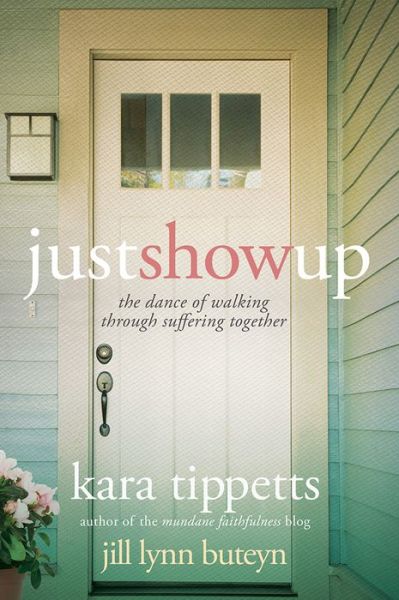One of the challenges of being a military brat was trying to figure out what was considered cool at any given new school. I went to five different elementary schools, and while I might have mastered certain things, like how to quickly discern what kids might make good friends, I was miserable at figuring out what the current trends were.
In fifth grade, we moved to Northern Virginia from Guam—even as a 10-year old, I recognized that the two cultures couldn’t be any more different. After careful consideration and studying what I perceived might be cool (i.e. watching multiple episodes of “Saved by the Bell”), I picked out a new first-day-of-school outfit and dressed proudly for the new year.
I didn’t anticipate two things: how much stirrup pants can ride up your booty, and how no one else would be dressed like me. I had totally, completely misjudged, and that set the tone; the class Mean Girl singled me out and favored me as a target that entire year.
Nowadays, I think she would have been considered a bully, but back then, we were told to keep a stiff upper lip and just try to ignore the cruelty. Which I did. And which just made her more aggressive.
I struggled initially that year but found good friends—a bunch of other kids who also didn’t fit in. We were misfits and proud of it. And we were inclusive—other kids responded to that, and in a weird way, we became kind of popular. This apparently angered Mean Girl, who had achieved popularity through intimidation and her cool clothes/hair. She was the first to know about new trends, and when she used new slang (undoubtedly learned from MTV because she was truly that rad), we all marveled at her awesomeness.
There was something about me she didn’t like. Somehow I innately knew that was okay—that not everyone would like me or want to be my friend. I ignored her attempts to belittle me, and I found comfort in my small circle of friends.
Until one Friday night when Mean Girl, who lived behind us, threw a slumber party and invited every girl in the class except me.
I was playing in our backyard with my little sister and brother when I heard the laughter. I peered over the fence to see all of my female classmates laughing and running around and jumping on Mean Girl’s trampoline. There were cake and gifts and balloons.
I ran inside and asked my mother if any mail had come that week that she had forgotten to give me—an invitation to The Party of the Year, maybe? Of course the answer was no, and when she realized what was going on, she and Daddy frantically tried to distract me and downplay the rejection. I love that they reached toward me in my adolescent pain, attempting to show me how loved I was despite what the world was telling me. But in that moment, I couldn’t hear them. I cried myself to sleep and dreaded going back to school on Monday where I would hear all the reports of the amazing party at Mean Girl’s house. A couple of girls even asked why I wasn’t there, and I had to admit the humiliating—because I wasn’t wanted.
I think back to that little girl 25 years ago, and she doesn’t seem too different from who I am now, even as a wife and mother. I still have that same desire to be wanted, to be included. I want to be seen and known and loved. I want to be invited to the party with all the cool kids. And yet the same is true today: not everyone will like me or invite me to their party. I’m still not a cool kid, I still am not invited to the cool parties, and it still stings.
It makes me wonder how many wounds I have caused without realizing it. Even last Sunday, I brushed past a smiling new friend in my hurry to do my task at hand. Later, the Holy Spirit brought that moment to mind, and I reached out to this friend apologetically. I hope and pray she not just forgives me but gives me a chance to show her that I truly do want to be friends and it’s not my heart to brush past people like that.
How many scars have I caused? It almost makes me weep thinking about it. I wonder if Mean Girl ever thought about me past elementary school. Did she ever realize how much she hurt me? Did she care? Is she okay now? Why was she so mean? Is she loved and cherished as an adult? Have her relational wounds from childhood healed? Have mine?
I don’t ask these questions to rehash the past; I ask them because I need to process through the hurt in order to remember that despite my pain, your pain, and Mean Girl’s pain, if we are God’s children, we have the promise of redemption. We have the promise of all these rejections and relational wounds becoming undone! We have the promise of God wiping away all our tears forever. And until that happens, we have the reality of hope in his love.
Rejection silences us with its shame. If we try to have a voice and express our pain and say, Hey, look at me! Don’t disregard me!, we feel ridiculous. We sink into the shame of realizing we are not loved as we thought, or valued or trusted or safe. Who we thought we were—the value we thought we had—has been demolished by a simple act or even a simple word. Our sense of self is attacked.
What do we do with this? How do we avoid rejection? I think C. S. Lewis said it best in The Four Loves:
“To love at all is to be vulnerable. Love anything and your heart will be wrung and possibly broken. If you want to make sure of keeping it intact you must give it to no one, not even an animal. Wrap it carefully round with hobbies and little luxuries; avoid all entanglements. Lock it up safe in the casket or coffin of your selfishness. But in that casket, safe, dark, motionless, airless, it will change. It will not be broken; it will become unbreakable, impenetrable, irredeemable. To love is to be vulnerable.”
In becoming vulnerable and allowing ourselves to be known, there lies the possibility of being loved with the love of Christ in the form of tangible, practical, human love that can be touched and enjoyed in person. On the other hand, if we are rejected by people, we are faced with the possibility of experiencing the love of God on a deeper level, in a glorious, intimate way! He will meet our loneliness and our pain. He knows rejection and understands that grief.
Rejection says, You aren’t loved, but the Gospel says, Nothing can separate you from God’s love (Romans 8). Rejection says, You are not cherished like you thought you were, but the Gospel says, God has chosen to love you and adopt you as his child (Ephesians 1). Rejection says, You are not worth my time and effort, but the Gospel says, God bought you for the ultimate price—you belong to him forever (I Corinthians). Rejection confronts you with embarrassment, humiliation, and shame, but the Gospel says, You are free from condemnation (Romans 8), and in Jesus, you are complete! (Colossians 2).
The question is, will we take that step to believe what God says about us over what the Mean Girls of the world say?







